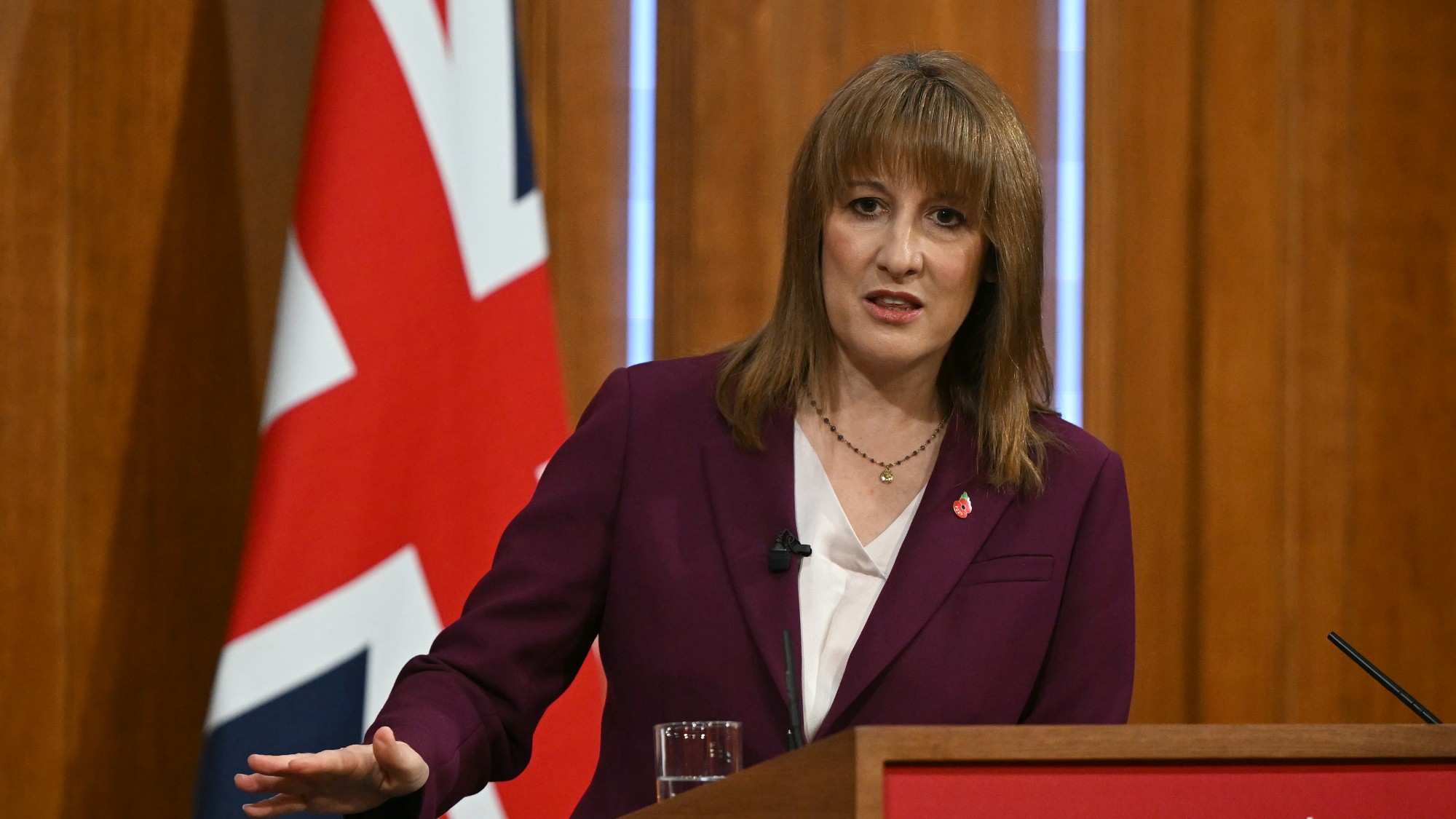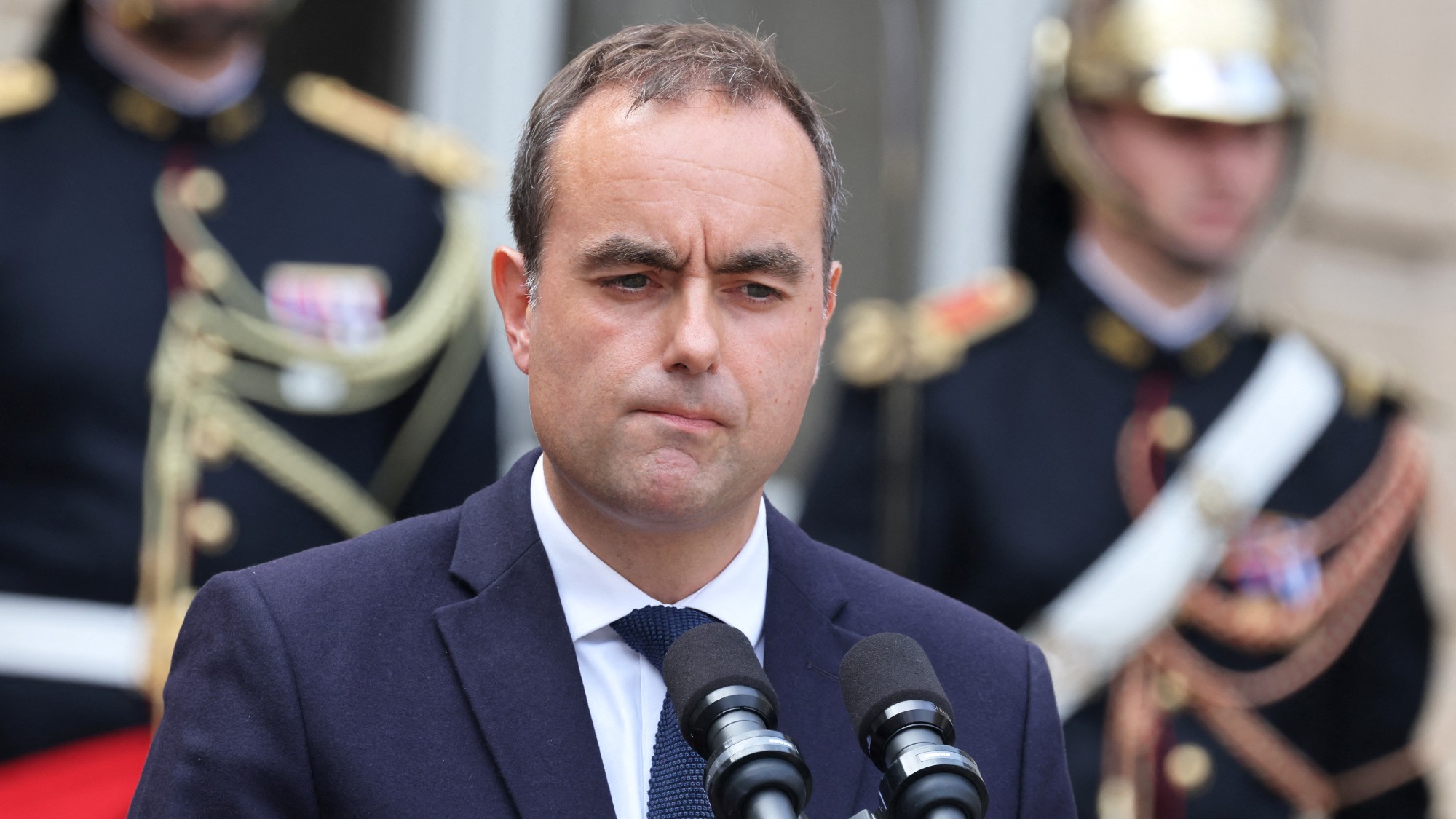Have the Tories ditched Thatcherism in favour of big spending?
Rishi Sunak’s Budget includes plans to splash the cash – but tax cuts also on cards

A free daily email with the biggest news stories of the day – and the best features from TheWeek.com
You are now subscribed
Your newsletter sign-up was successful
Record tax and spending increases in Rishi Sunak’s newly unveiled Budget represent a major “shift” in Tory philosophy, a Treasury minister has said.
The chancellor yesterday announced a £150bn boost for government departments, while “taxes are rising to their highest level as a percentage of GDP since the 1950s”, Sunak said. “I don’t like it, but I cannot apologise for it, it’s the result of the unprecedented crisis we faced and the extraordinary action we took in response,” he told MPs, in a reference to the Covid pandemic.
That message was echoed by Treasury Secretary Simon Clarke. Although the Tories have traditionally tried to cut taxes and keep spending down, Clarke told BBC's Newsnight that he made “no apologies” for increasing public spending.
The Week
Escape your echo chamber. Get the facts behind the news, plus analysis from multiple perspectives.

Sign up for The Week's Free Newsletters
From our morning news briefing to a weekly Good News Newsletter, get the best of The Week delivered directly to your inbox.
From our morning news briefing to a weekly Good News Newsletter, get the best of The Week delivered directly to your inbox.
Thatcherism has been “dumped and replaced” by “ruthless pragmatism”, declared Paul Waugh, chief political commentator for the i news site. This “new Tory politics is driven by the new Tory coalition, with northern and Midland seats as important as true blue southern heartlands”, he argued.
Those who say this is not a proper Tory government “may have a point”, agreed Quentin Letts in The Times, after MPs “cheered a rise in duty on full-bottomed clarets but a cut in the price of rose”.
“Pink wine? Tory grandees used to scorn it as Chateau Mouthwash for home counties hairdressers,” wrote Letts.
The Telegraph’s Allister Heath called Sunak's economic plan a “Labour Budget with a Tory twist and the kind of Spending Review that Gordon Brown would have relished”.
A free daily email with the biggest news stories of the day – and the best features from TheWeek.com
Boris Johnson’s government has “converted to Brownism”, said Heath, adding that Labour “may not be in office, but when it comes to the economy and public spending, they are very much in power”.
Over in the Financial Times, Martin Wolf suggested that Sunak’s “instincts remain those of the Treasury and previous Tory chancellors”, but that his Budget was a “recognition of political realities”.
“Significant reductions in the share of public spending in gross domestic product are impossible,” said Wolf. “This has led to the embrace of what are, by British standards, high taxes and a big state.”
Wolf pointed to the “political impossibility of repeating or even sustaining the squeeze on public spending imposed by George Osborne after the 2008 financial crisis”.
Sunak yesterday made an apparent effort to reassure nervous Conservatives, by telling the Commons that “by the end of this Parliament, I want taxes to be going down not up”.
Tim Bale is convinced that “the Tories will never change”. In an article for UnHerd, the professor of politics at Queen Mary University of London asked whether the “contrast” between the current and previous Tory governments was as “sharp” as has been suggested.
“Few if any” of this administration’s tax rises are “remotely progressive”, he argued, and “while capital spending and infrastructure projects have received an expected boost, day-to-day government spending... is going to be as tight as ever”.
Lloyd Evans in The Spectator also spotted some Thatcherism in yesterday's announcement. The chancellor outlined an increase in spending, but “halfway through the speech came a crunch of gears and a handbrake turn”. Sunak outlined his “personal philosophy” that the state cannot solve every problem.
“It was noticeable that his pearls of wisdom might have come from the teenage diaries of Margaret Thatcher,” added Evans, “but it seems that the real Sunak, the hard-nosed Thatcherite, is being constrained by the precepts of his boss.”
Yet for many, the change of heart is undeniable. Torsten Bell, chief executive of the Resolution Foundation think-tank, said that Johnson’s government has set a course for a “high-tax, big-state economy” with a Budget that signals “the end of low-tax conservatism”.
-
 The pros and cons of tapping your 401(k) for a down payment
The pros and cons of tapping your 401(k) for a down paymentpros and cons Does it make good financial sense to raid your retirement for a home purchase?
-
 Music reviews: Ari Lennox, Lucinda Williams, and A$AP Rocky
Music reviews: Ari Lennox, Lucinda Williams, and A$AP RockyFeature ‘Vacancy,’ ‘World’s Gone Wrong,’ and ‘Don’t Be Dumb’
-
 Book reviews: ‘Vigil: A Novel’ and ‘Fear and Fury: The Reagan Eighties, the Bernie Goetz Shootings, and the Rebirth of White Rage’
Book reviews: ‘Vigil: A Novel’ and ‘Fear and Fury: The Reagan Eighties, the Bernie Goetz Shootings, and the Rebirth of White Rage’Feature Taking on the space between life and death and a look back at a 1984 shooting that shocked New York City
-
 The high street: Britain’s next political battleground?
The high street: Britain’s next political battleground?In the Spotlight Mass closure of shops and influx of organised crime are fuelling voter anger, and offer an opening for Reform UK
-
 Is a Reform-Tory pact becoming more likely?
Is a Reform-Tory pact becoming more likely?Today’s Big Question Nigel Farage’s party is ahead in the polls but still falls well short of a Commons majority, while Conservatives are still losing MPs to Reform
-
 Asylum hotels: everything you need to know
Asylum hotels: everything you need to knowThe Explainer Using hotels to house asylum seekers has proved extremely unpopular. Why, and what can the government do about it?
-
 Will Rachel Reeves’ tax U-turn be disastrous?
Will Rachel Reeves’ tax U-turn be disastrous?Today’s Big Question The chancellor scraps income tax rises for a ‘smorgasbord’ of smaller revenue-raising options
-
 Will the public buy Rachel Reeves’s tax rises?
Will the public buy Rachel Reeves’s tax rises?Today’s Big Question The Chancellor refused to rule out tax increases in her televised address, and is set to reverse pledges made in the election manifesto
-
 Taking the low road: why the SNP is still standing strong
Taking the low road: why the SNP is still standing strongTalking Point Party is on track for a fifth consecutive victory in May’s Holyrood election, despite controversies and plummeting support
-
 Will billionaires kill France’s proposed wealth tax?
Will billionaires kill France’s proposed wealth tax?Today's Big Question In Paris, a preview of the debate over Zohran Mamdani’s NYC proposal
-
 Behind the ‘Boriswave’: Farage plans to scrap indefinite leave to remain
Behind the ‘Boriswave’: Farage plans to scrap indefinite leave to remainThe Explainer The problem of the post-Brexit immigration surge – and Reform’s radical solution